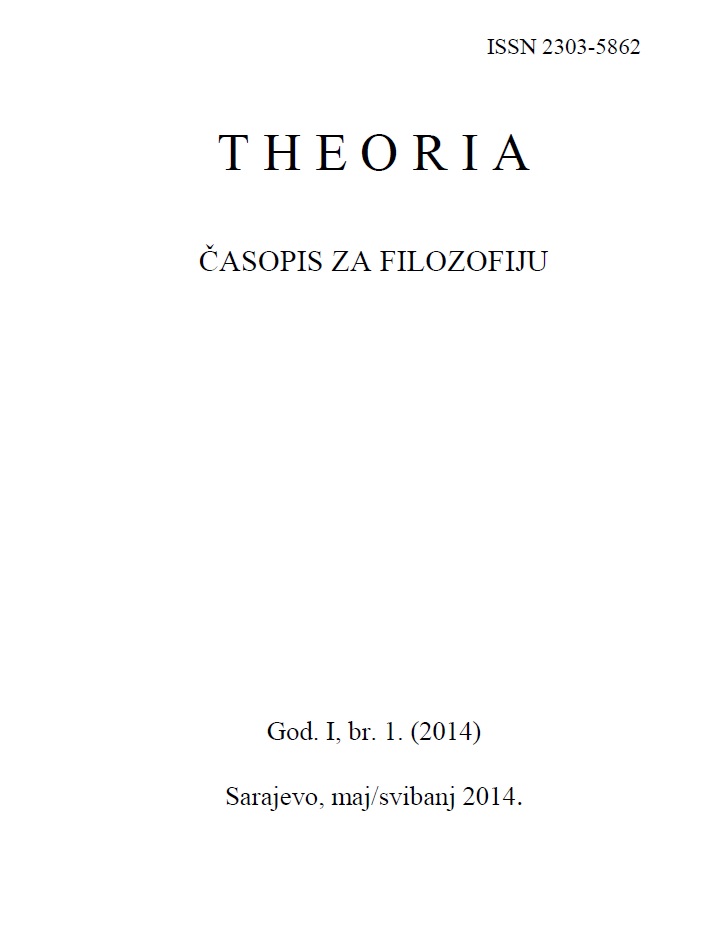Problemi metodologije u interpretaciji umjetničkog djela
Problem of the methodology in the interpretation of an artwork
Author(s): Jure ZovkoSubject(s): History of Philosophy, Philosophical Traditions, Metaphysics, Aesthetics, Phenomenology, Hermeneutics
Published by: Filozofsko društvo THEORIA
Keywords: Gadamer; Truth and method; process of understanding; hermeneutics; interpretation; explanations; hermeneutical reflection; correctness of interpretation; critics of Gadamer's theory of interpretation;
Summary/Abstract: The basic intention of Gadamer's Truth and methods is to argumently show how experience and understanding of the truth in the spiritual sciences are significantly different from method and methodology of natural and technical sciences. According to Gadamer's understanding the subject of study and research in humanistic sciences is not something abstract and foreign to us, it is something what necessarily belongs to us as for the being that creates culture. This is about culture and thought tradition which comes as the result of realization of the human spirit with whom, in the process of understanding, we enter into dialogue. The primary purpose and task of hermeneutics is to achieve a reliable and responsible interpretation in the field of all forms of the creativity of human spirit, especially in the art and culture. The Hermeneutic question is not only focussed on the interpretation and explanation of the existing objectification of human spirit, but also considers and evaluates the possibilities of new forms of artistic and cultural creativity, seeking for thoughtful answers to the challenges of modern times, as well as acceptable solutions to the complex problems of modern society. Hermeneutic reflection, as Hans-Georg Gadamer puts it, asks questions that relate "to the whole human experience of the world and life practice. It asks, Kantian said, how understanding is possible.'' One of the burning problems and main defects of Gadamer's hermeneutics is the question if the correctness of interpretation has been pushed to the fore. Gadamer received critics about his relativistic point, especially where he explained that we understand and expose works differently from the way author understood it. With such attitude,the hermeneutical reconstruction of the original intent of the author, was seriously brought into question. The task of the critics of Gadamer's theory of the interpretation is to check hermeneutically the adequacy of the offered interpretations, and do they correspond to the original intent of the author. The principle of "different understanding" is conditioned by our temporality, by the spirit of the time in which we live and by our hermeneutical expectations which, in rule, are different from those in which author of the works we interpret, lived. The unpredictability of the reception in the process of understanding is particularly an important segment that Gadamer does not want to drop out of sight.
Journal: Theoria časopis za filozofiju
- Issue Year: I/2014
- Issue No: 1
- Page Range: 115-129
- Page Count: 15
- Language: Croatian

